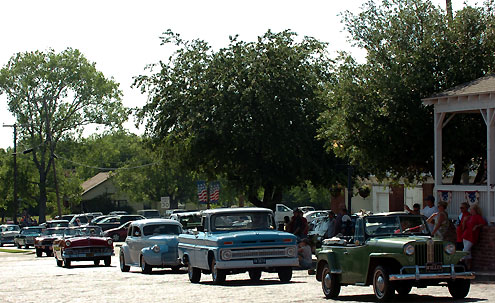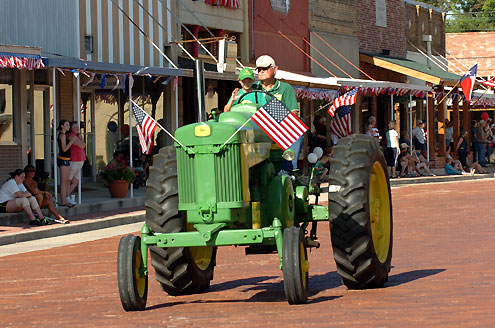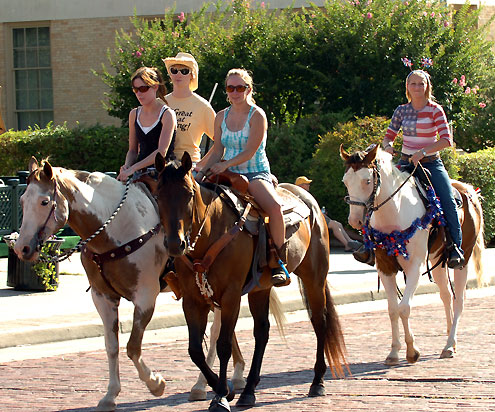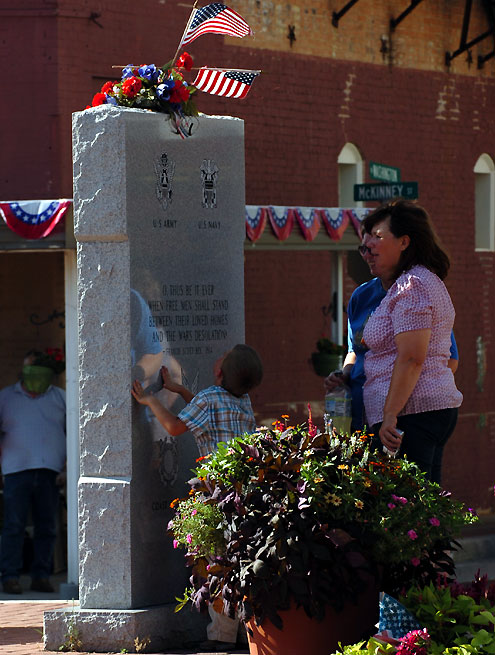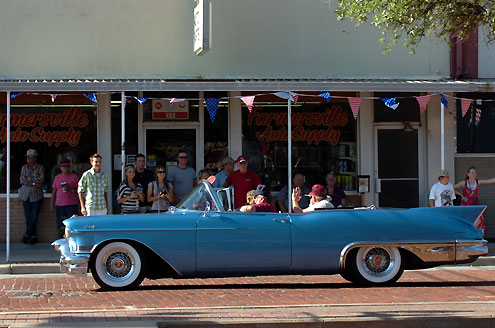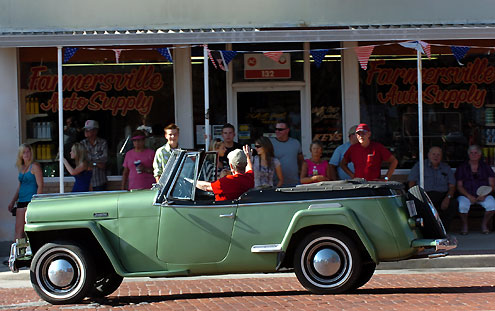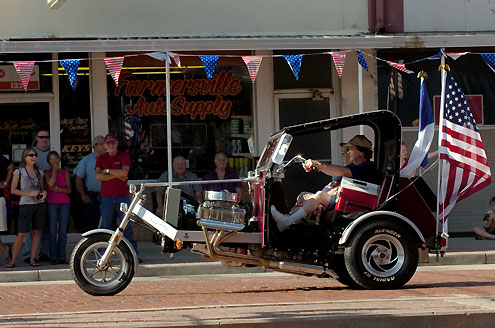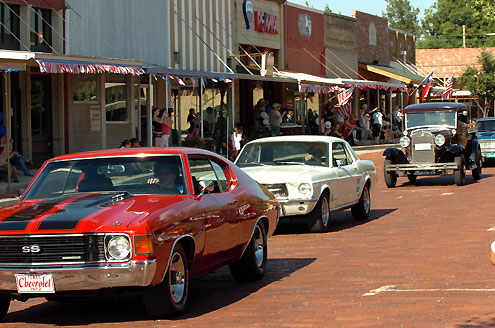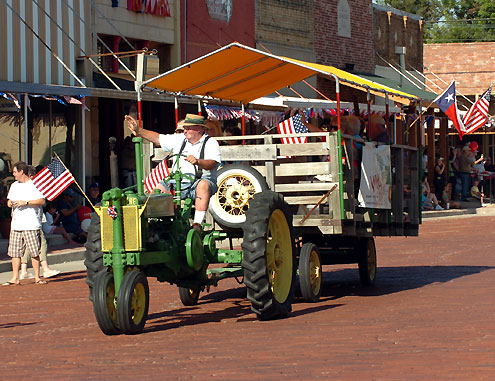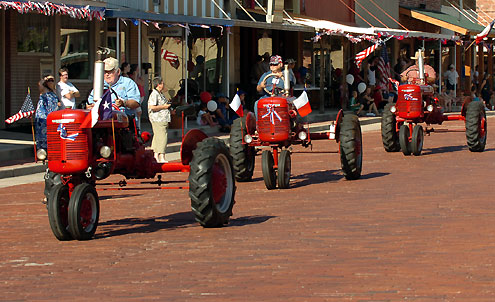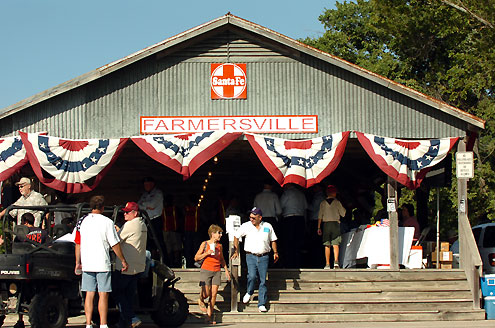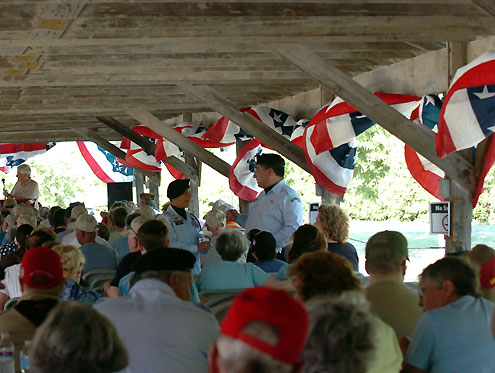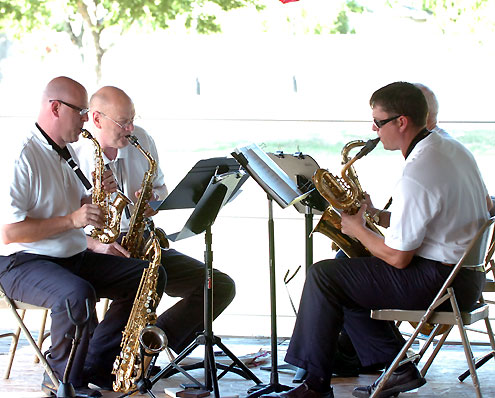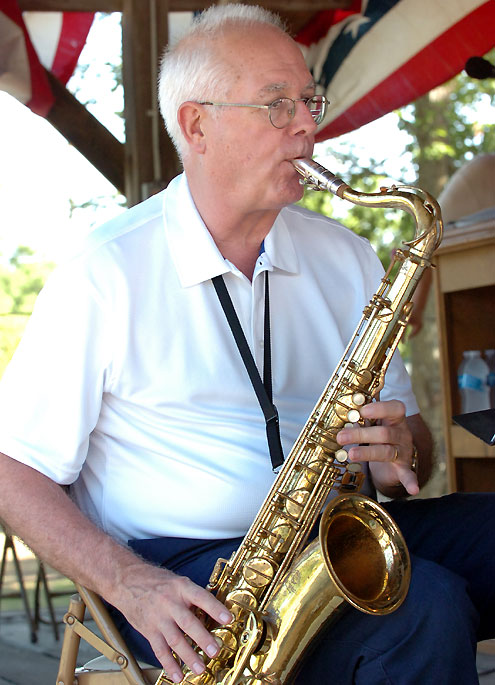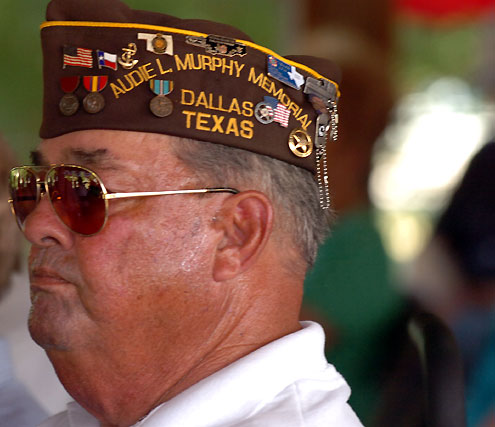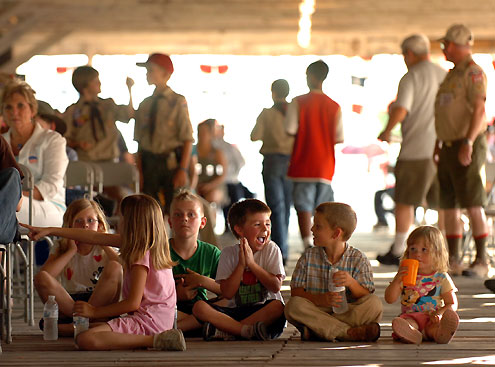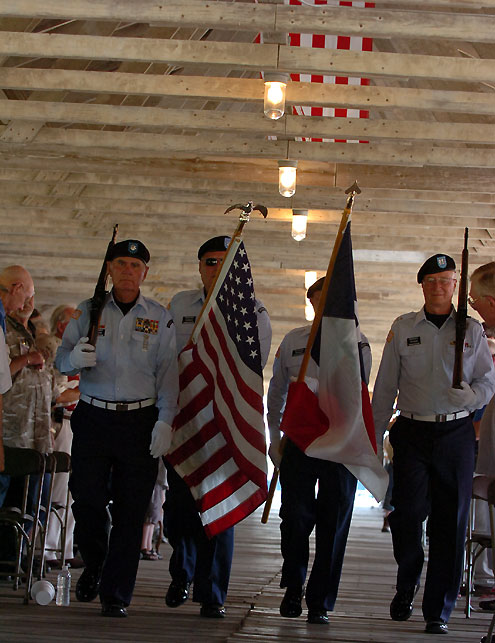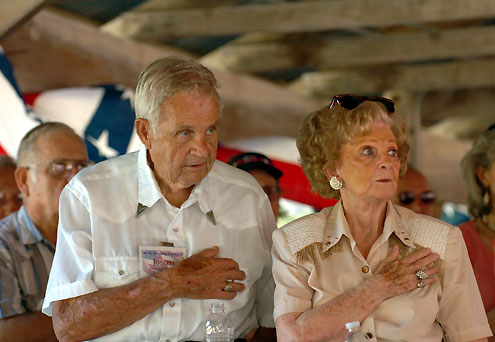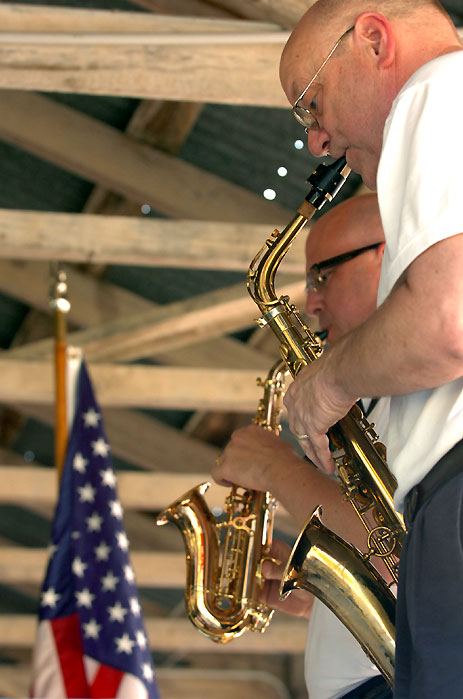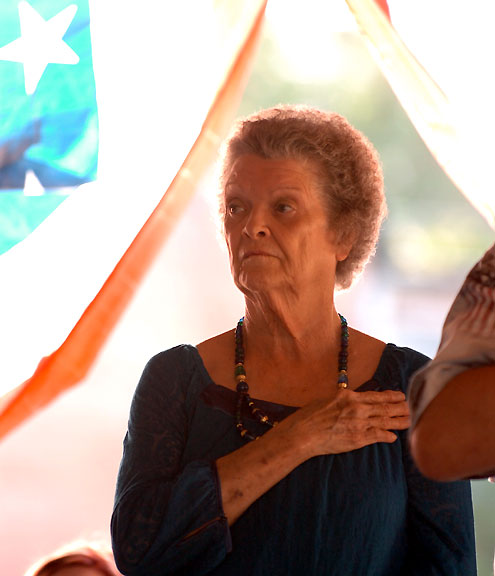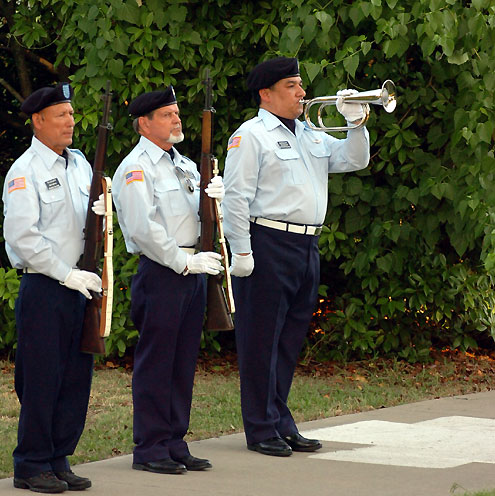Farmersville -- Audie Murphy proudly claimed Farmersville, Texas as his hometown on the U.S. Army dog tags worn around his neck and the folks around this North Texas town honor the most decorated soldier from World War II every summer on the Saturday nearest his birthday.
It was an idyllic afternoon on the patriotic city of Farmersville June 19 as children waved flags and people from near and far braved the sweltering heat wave to remember a man famous for bravery and valor. This was also an opportunity to recognize all U.S. veterans; 153 veterans signed up to participate, but almost 200 veterans showed up to take part in this special day.
Local Boy Scouts volunteered their services and cleaned up Prairie Grove Cemetery, the final resting place of Josie Murphy, mother of Audie Murphy.
An impressive parade kicked off a busy afternoon in Farmersville. Veterans from as far away as the Sam Rayburn Veterans Center in Bonham came to ride in the parade. The Garland Fire Department sent a fire truck to carry another group of veterans along the parade route.
Then the crowd made their way to Farmersville's Historic Onion Shed to enjoy patriotic music by the Dallas Saxophone Quartet and listen to keynote speakers.
The Tri-County Honor Guard presented the colors.
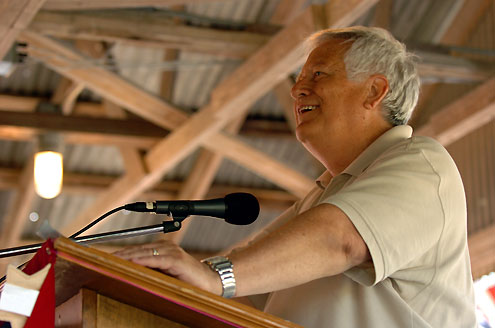
"Welcome to Farmersville, gateway to Audie Murphy country," remarked Jim Foy, master of ceremonies for the parade and co-chairman of the Audie Murphy Day festivities.
Farmersville Mayor Joseph E. Helmberger read the official proclamation declaring June 19 as Audie Murphy Day.
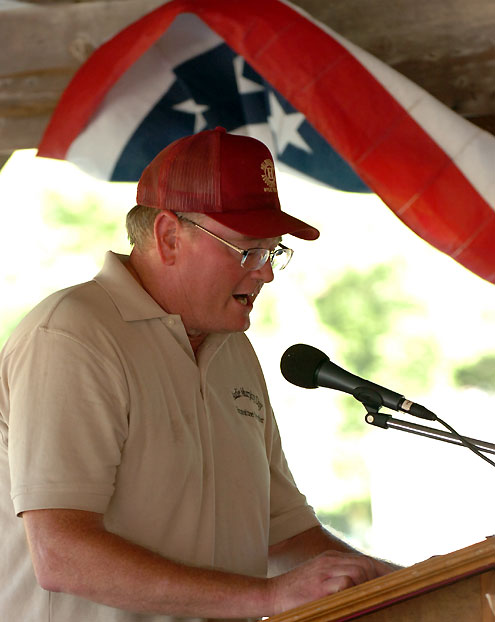
Audie Murphy's sister, Nadine Lokey, spoke with candor about the increasing struggle middle-class Americans face to simply put food on the table for their families.
"Our government is out of touch with the people -- at least people like us," Mrs. Lokey stated.
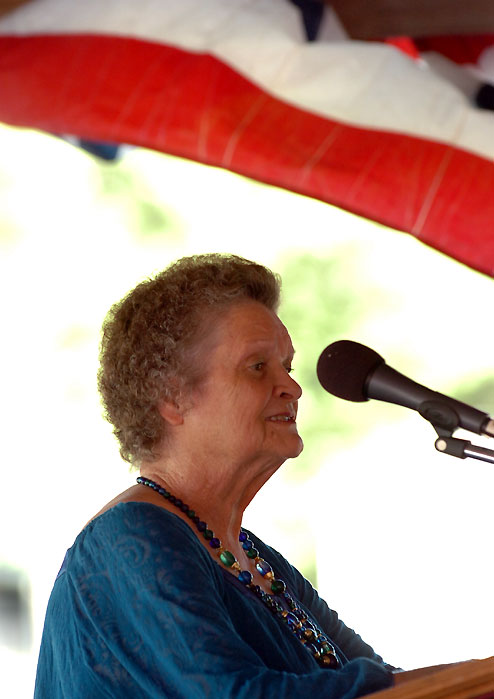
Audie Murphy was one of the first high-profile soldiers to openly discuss a personal battle with post-traumatic stress disorder and to ask for extended health care benefits for soldiers returning from combat.
Mrs. Lokey seemed to be contemplating the long-term affects today's U.S. veterans face as they return home from extended tours in Iraq and Afghanistan.
"I hate that war," Lokey said firmly. "I hope you all hate that war."
